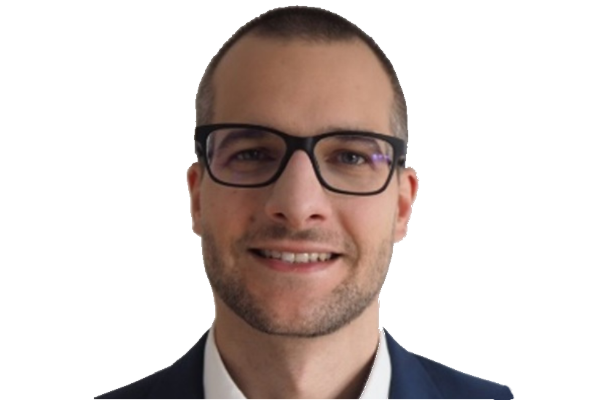Ola worked for several years as a Product Manager in a book publishing house. After a few years' break in her professional career, she stated that she wanted to prove herself in the IT industry. This is how she found a Scrum Master course at Future Collars and then an internship at Setapp. We asked Ola to tell us about her path to professional change and share advice for people before changing the industry. Read the interview and learn about Ola's story!
What did you do before the change of business and did the experience help you in the process of changing your career?
My entire professional career has been related to books. For several years I worked as a Product Manager in a publishing house. Working in IT is different in many ways, but working with people is a common trait. When a new author appeared in the publishing house, my role was to take care of his needs and make the vision real in the form of a book. On the other hand, I had to reconcile the author's expectations with the business assumptions of the publishing house. As a Product Manager, I tried to do everything to make both parties satisfied with the cooperation and the result. Each author was different in terms of temperament, experiences, and expectations. It is similar in teams working in IT: everyone is different, and as a team, it is supposed to work efficiently and effectively. Previous work experience helps a little, but the change is enormous.
Why did you decide to change your career path and enter IT?
My husband works in IT, and I have always been fascinated by his work. However, it seemed to me that this industry is only for people with IT studies and that there is no place in it for me. For personal reasons, I had a five-year break in my professional career. When I started thinking about returning to work, I felt it was time to test myself in something new. I wondered what is important to me and how and where I want to work. I considered two options. The first was the IT world - interesting and dynamic, offering enormous development opportunities and a sense of financial security. The second was to start your own business or work in a foundation with the mission of helping people. I chose IT.
What are you doing at present? What is your internship like?
After completing the Scrum Master course at Future Collars and getting a certificate, I wondered where I would like to start working. I dreamed of a company that would be development-oriented, open to people, and ready for changes. Setapp, where I am currently doing my internship, is just such a place. An intelligent, empathetic, and wise mentor guides me through the internship. We worked from general to detail: we started with recalling the knowledge I gained during the Bootcamp, and slowly we moved on to more detailed tasks. I join teams as an observer: I watch how they work and get to know people. The entire Agile Office team is very supportive and patient. We meet regularly and talk through all our doubts. It allows me to hear how different people work on the same thing and get their point of view. This learning method is brilliant, and I don't think I've learned so much in such a short time. Setapp provides a large amount of training, so there is no shortage of opportunities to learn from the beginning. Soon I will join the project and start gathering practical experience as a Scrum Master.
Was the course sufficient to feel confident enough in your new responsibilities and find an internship in a new profession?
The course was not enough to feel confident in my new position. However, it allowed me to verify that I had chosen the right path in IT. The Bootcamp was a moment when I became very interested in the work of Scrum Master, and this aroused curiosity became the driving force for looking for a job.
How long has it been since you finished your course and found an internship?
I found the internship eight months after completing the course. From the beginning, I assumed that it might be difficult and would take a bit of patience. I did not expect an immediate effect. I knew that specific circumstances, such as age, break from work, and inexperience may make it difficult to find a new job. There were moments when I doubted if I would succeed, but I chose patience and consistency, which paid off.
Why did you choose the Scrum Master course?
I thought that I would not overcome my limitations and learn programming, so I looked for something the least technical. I talked to people from the industry and asked what the situation was in their companies and what employees they were looking for. I also looked at job advertisements and took part in several webinars. During one of them, I discovered what the Scrum Master does, which intrigued me greatly. I felt it was something for me and stopped looking for other possibilities. The next step was to find a place where I could learn this.
What is it like to learn everything from scratch and how do you recall your learning period?
On the one hand, it was difficult for me because I had to acquire a lot of new knowledge in a short time. It is still the case, anyway. At the same time, the experience is fascinating, invigorating, refreshing, and thrilling of the old tracks. A curiosity has aroused in me that makes me want to continue my studies.
What was the most difficult for you on the way to your professional change, at the course or at the beginning of the internship?
The hardest part was overcoming our fears. I faced doubts about whether I would be able to cope or, as a woman, I would find myself in IT. It is probably human nature that we throw ourselves at our feet. But now, I am approaching new challenges on a "fear and do" basis.
The course was also a challenge. The learning was intense. In addition, we had to do a project that required us to organize ourselves into a few people. In turn, the internship bumped me because I did not know the functions in IT and concepts, and I often did not understand what my colleagues were talking about. It was frustrating. When I got to the meeting with the English-speaking team, there were also some language gaps. Even so, I get out of my comfort zone and move forward. I believe that there is no development without difficulties. It's getting better every day. I try to treat this situation as an adventure.
Can you advise people who want to change their professional path?
I would advise them to think about what they like to do, what is important to them at work, what their good points are and on this basis they should look for a new path. And once they decide to change to make them work. The worst thing you can do is do nothing! If I had been able to cope with myself a few years ago, I would have said: don't stand still, don't wait.
In retrospect, how do you evaluate the decision to change?
Let me summarize: I couldn't have made a better decision!






